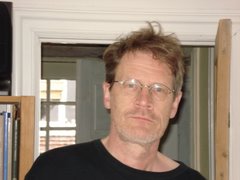This abstract was written for the session "Biography at the Crossroads" at the 3rd British-North American History of Science Meeting in Edinburgh, July 23-26, 1996 (file is dated 24 June 1996; but this is probably wrong, I must have sent in the abstract long before)
The Good Life in Science: Biography as Therapy of Scientific Desire
Irrespective of their epistemological positions, historians of science almost invariably focus on accounts of how scientists relate to the objective world. Even when the moral world is considered, factual knowledge (true or `true') of the objective world constitutes the rationale for doing historical scholarship ((cf. Steven Shapin, A Social History of Truth, 1994). Instead of viewing science as a moral system for the production of factual knowledge, I wish to open up for a discussion of how scientists have pursued a good life in science.
One classical moral philosophical view of the good life is the Platonic/Augustinian search for the highest good in God. The secular, scientific version of this classical ideal is to know and love the truth; the best secular life style in search of the good is that of a life in the Republic of Science. This secularized conception of a good life in science is not very popular today. Instead, hedonism has crept into the heart of Academia. The idea of a good life in science today is rather articulated in terms of pleasure-ethics.
A better foundation of a discourse about the good scientific life is found in the virtue-ethical tradition. Aristotle's Nicomachean Ethics has inspired a recent renaissance in moral philosophy (e.g., Alasdair MacIntyre, After Virtue, 1981). Based on MacIntyre's argument about the relation between virtues and the good life one can distinguish between different kinds of goods in science: goods external to scientific practices, goods internal to practicies, and the narrative quest in search of the good. MacIntyre's notion of the unity of virtues is important because it opens up for a discussion of virtues in science different from that of recent studies of the moral economy of science (e.g., Lorraine Daston, Osiris, vol.10, 1995).
The renaissance for a virtue-ethical approach to the good life has consequences for our understanding of the role of biography in the historiography of science. Biography is usually seen as a genre for the reconstruction of individual scientific production (scientific biography) or for understanding the social conditions of science (social biography). However, from a virtue-ethical point of view, biography is primarily a genre that provides exemplars of what it means to lead a good life in science. Biographies force us to ponder the differences between our own life accounts and those of others. Trying to understand how other people's lives fit together, how they are narratable, and how they have tried to attain a good life, we may begin to understand our own quest for the good life. This, I suggest, is an aim of biography so far neglected in the historiography of science.
Finally, I will shortly discuss the implications for biography in history of science raised by Martha Nussbaum in her reconsideration of Hellenistic moral philosophy (The Therapy of Desire, 1994).
The Good Life in Science: Biography as Therapy of Scientific Desire
Labels:
biography,
good life,
scientific biography,
therapy,
virtue ethics
Subscribe to:
Post Comments (Atom)

No comments:
Post a Comment